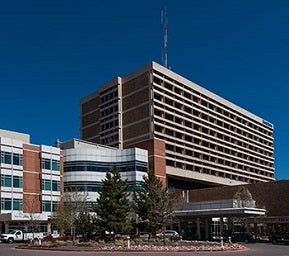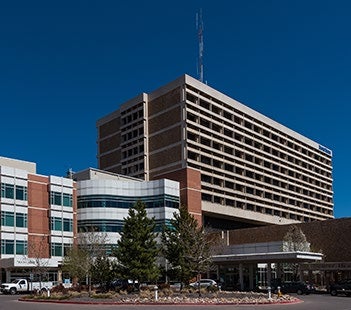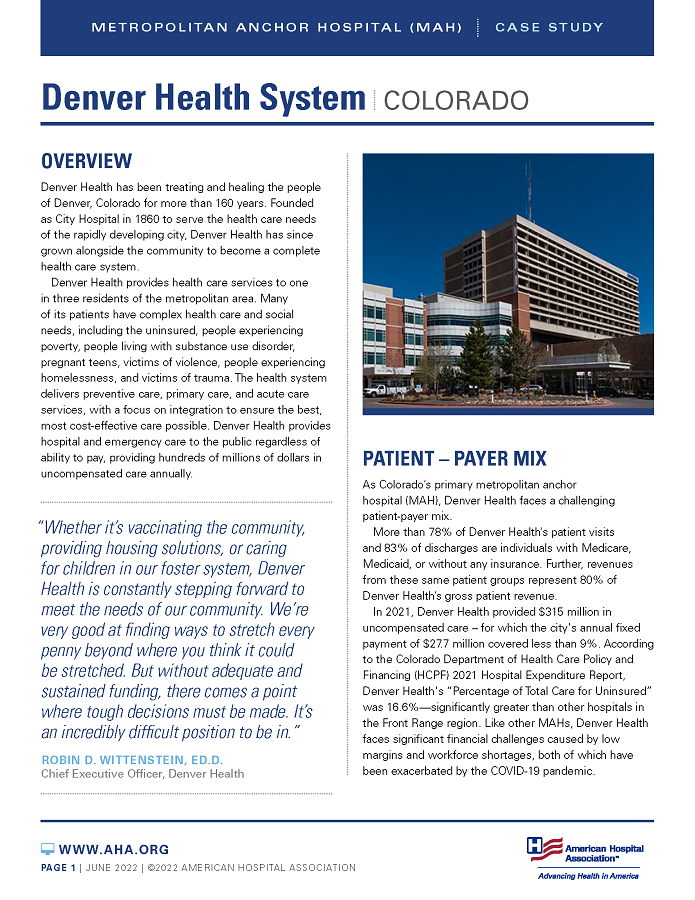

Denver Health System | Colorado
Metropolitan Anchor Hospital (MAH) | Case Study
Overview
 Denver Health has been treating and healing the people of Denver, Colorado for more than 160 years. Founded as City Hospital in 1860 to serve the health care needs of the rapidly developing city, Denver Health has since grown alongside the community to become a complete health care system.
Denver Health has been treating and healing the people of Denver, Colorado for more than 160 years. Founded as City Hospital in 1860 to serve the health care needs of the rapidly developing city, Denver Health has since grown alongside the community to become a complete health care system.
Denver Health provides health care services to one in three residents of the metropolitan area. Many of its patients have complex health care and social needs, including the uninsured, people experiencing poverty, people living with substance use disorder, pregnant teens, victims of violence, people experiencing homelessness, and victims of trauma. The health system delivers preventive care, primary care, and acute care services, with a focus on integration to ensure the best, most cost-effective care possible. Denver Health provides hospital and emergency care to the public regardless of ability to pay, providing hundreds of millions of dollars in uncompensated care annually.
Patient–Payer Mix
As Colorado’s primary metropolitan anchor hospital (MAH), Denver Health faces a challenging patient-payer mix. More than 80% of Denver Health’s patient visits and 83% of discharges are individuals with Medicare, Medicaid, or without any insurance.
Further, revenues from these same patient groups represent 80% of Denver Health’s gross patient revenue. In 2022, Denver Health incurred $120 million of uncompensated care cost — for which the city's annual fixed payment of $29.7 million covered less than 25%. According to the Colorado Department of Health Care Policy and Financing (HCPF) 2023 Hospital Expenditure Report, Denver Health's “Percentage of Total Care for Uninsured” was 15.9%––significantly greater than other hospitals in the Front Range region. Like other MAHs, Denver Health faces significant financial challenges caused by low margins and workforce shortages, both of which have been exacerbated by the COVID-19 pandemic.
Denver Health's Unique Approach to Care
Despite these challenges, Denver Health has found innovative ways to serve the community and holistically care for patients.
Addressing Social Determinants of Health
Denver Health recognizes that many of the care needs addressed in its hospital system are linked to social determinants of health, such as neighborhood safety, systemic racism, housing, food security, and limited transportation. Denver Health works closely with the City and County of Denver, as well as its civic, business, and nonprofit partners, to identify and address community needs through a range of programs and initiatives. One recent example is a partnership with the Denver Housing Authority to develop a transitional housing unit so patients experiencing homelessness have a place to heal and recover from the hospital.
Finding Innovative Ways to Reach Vulnerable Communities
Denver Health is constantly finding new ways to reach historically marginalized community members. For example, the recently launched Mobile Health Centers (MHCs) have been an invaluable tool in efforts to bring COVID-19 testing and vaccinations into some of Denver’s hardest-hit neighborhoods and deliver care to people who otherwise might not have access. Once COVID-19 efforts are no longer necessary, the MHCs will be used to deliver other primary care services, including important health screenings.
Serving as an “Anchor Institution”
Denver Health seeks to leverage its economic power alongside its human and intellectual resources to improve the long-term health and social well-being of its community. Recent efforts include:
- Establishing a Workforce Development Center to provide low-income employees with financial education and individualized counseling, career pathing, and access to social services.
- A partnership with Emily Griffith Technical College to manage the OMC Café, providing students with employment while helping them learn new skills that can lead to a career.
- Hiring a local, minority-owned real estate firm to handle the sale of Denver Health properties.
- Starting a supportive enrollment process to help families enroll in SNAP, WIC, and other programs they may qualify for, with the goal of helping to stabilize families and make sure children can flourish.
- Providing job opportunities with growth potential by partnering with local community organizations to place people in positions at Denver Health.
Metropolitan Anchor Hospitals Need Greater Support
Despite the financial challenges MAHs face, Denver Health has continued to expand programs, increase patient visits, and develop innovative ways to provide care. But to be more impactful, MAHs like Denver Health need adequate and sustained federal support. This will ensure all MAHs are better positioned to expand successful programs, increase capacity, invest in urgent capital needs, and continually adapt to meet their communities’ evolving medical needs.


